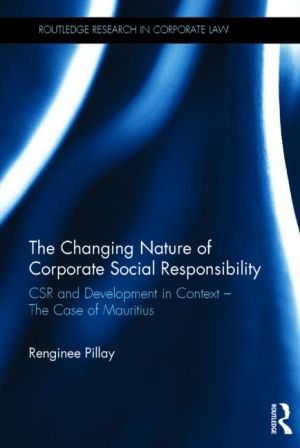
This book examines the changing nature of corporate social responsibility (CSR) as it has been conceived over the past eighty years. It considers the historical and socio-legal developments of the idea of CSR and the various conceptions of the corporation which underlie different models/conceptions of CSR. CSR has increasingly been promoted in a developing country context as an important mechanism for furthering economic and social development goals. The book explores both the model of CSR being deployed in the developing world, as well as the links between CSR and development.
Mauritius is used as a case-study as, in recent times, CSR and corporate governance issues have come to the fore of the Mauritian political, financial and legal landscapes. CSR has been promoted as something which can make an important contribution to development and Mauritius is unique in that in 2009 CSR legislation was enacted requiring companies to either spend 2 % of their profits on CSR activities approved by the government or to transfer these funds to the government. Drawing on empirical research the book examines how the CSR legislation has been implemented in Mauritius and analyses its impact on development.